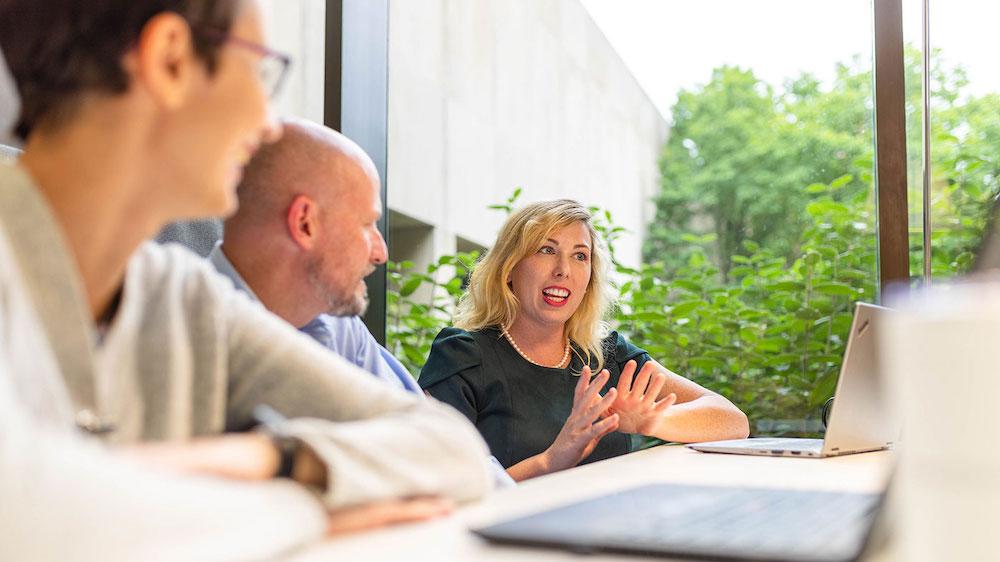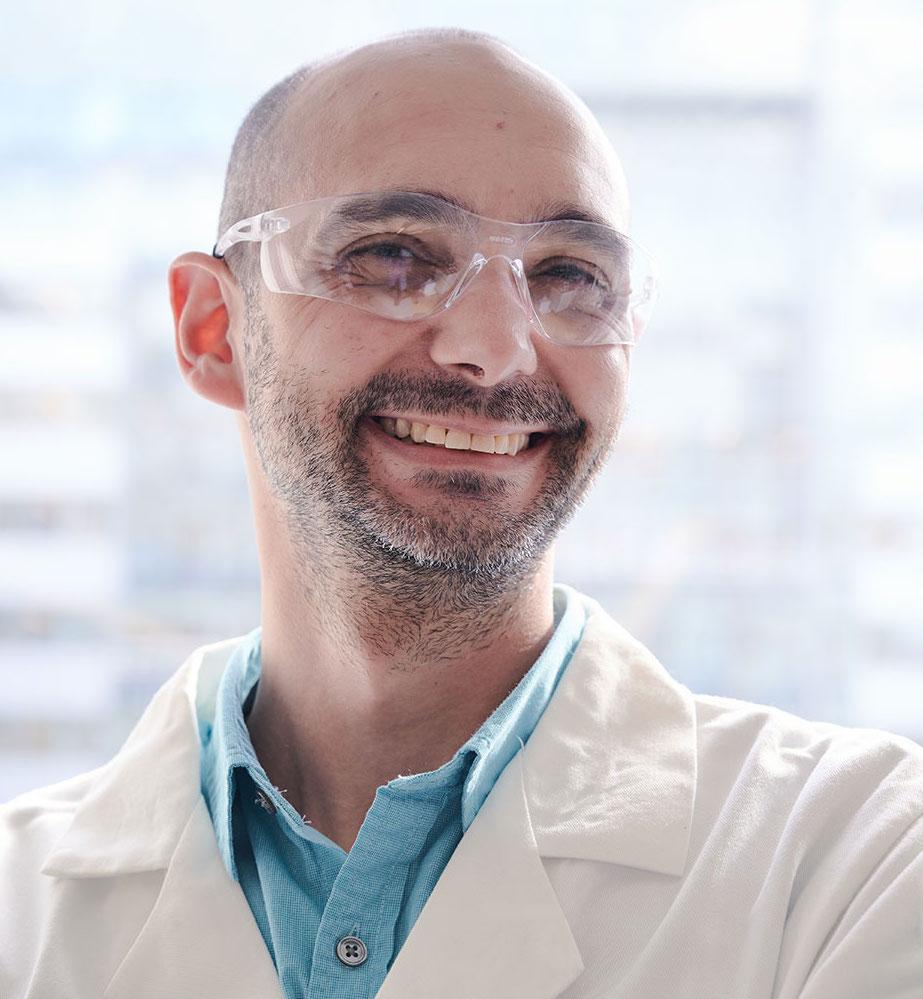Voices From R&D: Personal Experience Inspires the Development of New Medicines
Culture of support fosters innovation
Originally published on Bristol Myers Squibb News & Perspectives
As a bench scientist, Matt Labrecque has a front-row seat to the discovery of new medicines. An innate passion for science and patients powers his work, but his inspiration to help patients goes beyond the professional.
Matt is a Bristol Myers Squibb employee who lives with multiple sclerosis and clinical depression, and he has personally experienced the impact that scientific advances can have on an individual patient’s life.
“I have benefited from advances in science,” he said. “I don’t know what the long term will bring, and I still experience symptoms, but science has made a difference for me. Through my role in R&D, I want to help as many patients as possible by developing new medicines, because we have all been touched in one way or another by diseases.”
At BMS, we know our employees’ professional drive to succeed is sometimes rooted in their own personal experience as a patient. We encourage all colleagues to bring their authentic selves to work, and we believe diverse thinking and a collaborative culture can help spark innovation. Research supports this thinking — regardless of industry or sector, leaders that proactively seek diverse viewpoints experience higher rates of successful business innovation.
With that goal in mind, BMS develops programs that support our colleagues and welcome their patient experience as part of our pursuit of innovative solutions to some of the most challenging illnesses.
Authenticity at work
Julie Meade, PhD, an R&D employee at Bristol Myers Squibb who prepares clinical trial protocol documents, has also found that her personal experience with chronic illness has impacted her professional and personal mission.
“I am someone with cognitive and physical disabilities, as well as chronic illness,” she said. “Without receiving treatment for my conditions, I wouldn’t be able to do the amazing work I do today to prepare protocol documents that lead, in the long run, to helping patients get the medicines they need. I know firsthand that medicine can change lives.”
Her successful work in R&D is supported by BMS’ culture, which emphasizes diversity and inclusion. Julie is an active project lead in the Disability Advancement Workplace Network (DAWN), one of the company’s People and Business Resource Groups (PBRG), and as part of her work supporting the Colleague pillar finds ways to increase recruitment of people with disabilities to BMS. Recently, her team took part in a training session on neurodiversity led by a facilitator from DAWN, and colleagues had positive feedback about the session, expressing interest in becoming allies and learning more about neurodiversity and cognitive aspects of diversity.
“BMS encourages employees to bring their authentic selves to work,” said Julie. “I believe people are happier, and are ultimately better at their jobs, when they can get the right support and work with colleagues who want them to reach their full potential.”
Like Julie, Matt has had the opportunity to support his colleagues through sharing his personal perspective. Matt is an active DAWN member, and his work has led to involvement in discussions of accessibility around new initiatives, ensuring that barriers are removed and inclusion of colleagues with disabilities is top of mind. He is also the co-lead of the Massachusetts Mental Health Ally (MHA) program, which launched in collaboration with DAWN late last year. In that role, he helps to develop programs to reduce stigma around mental health.
The response to the MHA program has been encouraging. Surveyed pilot sites that have participated in the MHA program continue to demonstrate increase in positive sentiment of employees’ awareness and willingness to use resources that support positive mental health in the workplace, increased willingness to discuss mental health, and a positive shift in sentiment regarding manager and company support of mental health in the workplace.
Matt is also excited about the recent launch of the Disability Diversity in Clinical Trials (DDiCT) initiative and how it will inform the development of medicines. This new initiative aligns with broader inclusion and diversity health equity commitments at Bristol Myers Squibb to address health disparities, clinical trial diversity, supplier diversity, employee giving, and workforce representation between 2020 and 2025.
“This initiative is critical from a scientific standpoint, and I’m looking forward to the impact it will have on patients,” he said.
Feeling supported by the inclusive culture
In the big picture, Matt has found that the overall culture of inclusion in the workplace is a key part of creating an environment where everyone can be successful. From his manager and team to the larger company, he has had encouraging dialogues about the challenges encountered due to illness, and how to flex to work around them.
“Not all diagnoses are visible to others,” he said. “So it’s important to create a culture where we trust each other and have empathy and understanding for colleagues. Supporting mental and physical health of colleagues is so important, and flexibility in where and when to do work is a vital part of that. My team has been very flexible.”
Julie, too, has noticed the day-to-day flexibility that makes it possible to independently manage her work schedule with healthcare appointments and times when physical and cognitive issues arise. “Everyone here trusts each other,” she said. “We’re all in it together.”
Her current role is built on a culture of collaboration among colleagues. This supportive culture has helped to keep Bristol Myers Squibb at the forefront of scientific innovation that serves patients, through work in R&D and beyond.
“Working at BMS, I’m able to make meaningful contributions in the drug discovery process,” Julie said. “My hope is that, with the right medical treatment, patients can focus on enjoying their lives and doing the things they love with the people they love.”



